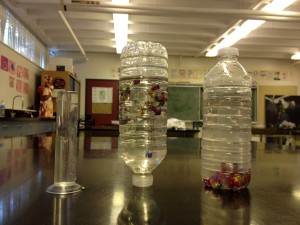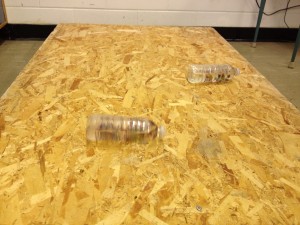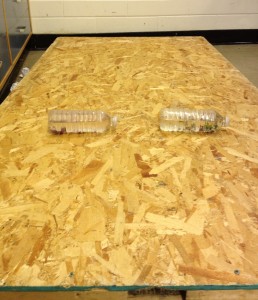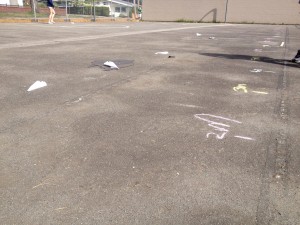Monthly Archives: July 2014
Pro D Days
I attended two pro-d days that both related to self-regulation over the past year. It was really interesting considering that is was the focus of our cohort at UBC. What I really appreciated was how they discussed the physical aspect of self-regulation. We focused mainly on self-regulated learning at UBC, but in these seminars it was interesting that they presented that physical self-regulation is more important to start with because the brain will not learn very much if it is concerned with the bodies well being. We then discussed different ways that children often need to physical self-regulate and it helped me understand the whole area of self-regulation much better. Two particular areas of focus were proprioception and vestibular issues. Vestibular issues make it difficult for a child to sit still and balance. Often a student will need to move to keep his balance, much like it is easier to balance on a bicycle while moving. Proprioception issues make it difficult for a student to sense their surroundings. These students often have difficulties with personal space and may run their fingers down the halls as they walk. I gained a new understanding of the importance of our physical needs and how we as adults understand strategies to meet our needs in order to be comfortable enough to learn. As teachers, if we can help students understand themselves and their basic needs, we can help them to be more successful in a learning situation.
Assessment
Assessment. Oh assessment. This is such a critical area in education. How well is a student doing? How do we gauge, measure, communicate their learning/progress? My experience was that much of what exists in schools is either unofficial, poorly communicated formative assessment or summative assessment to give students a mark. The two strategies I tried for assessment were duo tangs to collect the work we had done in class and an inquiry project for science class. I was extremely happy with the inquiry project and how the students presented their learning. Many great discussions developed out of the student presentations. I am still hoping to improve my assessment strategies, in particular my formative assessment and communication of this formative assessment. I need to improve me time management to make formative assessment and student meetings with me a priority. In addition, relating to my teaching philosophy, helping a student see how far they have traveled on the educational journey is immense in helping them grasp how much they are capable of. Measuring and communicating progress is extremely important and so it is imperative that I improve.
Viscosity
In order to demonstrate viscosity, I did a demonstration with a bottle of water rolling beside a bottle of corn syrup. The students were very engaged in discussing the different properties of water and corn syrup and how they interacted with the bottle. I actually was not sure how this lesson would go over, but I was really impressed with the students’ responses. To relate it to my belief statements, I think it really makes a difference to simply change the physical set up of the class and let them move around and sit differently in different situations. I changed the dynamic of the class and led to more discussion to have a more relaxed physical setup for the demonstration.

Connecting Learning to Practice – Paper Airplanes
Another idea pulled from our science class at UBC was using paper airplanes. In this case I used it to get the class outside and make a lesson on graphing and data collection a little more exciting. I did struggle a little with structure and would try to organize the actual throwing and measuring of the planes better if I did it again. I would probably just have the students in partners instead of larger groups as I did on this day.
Connecting Learning to Practice – Tinfoil Boats
Gallery

This gallery contains 7 photos.
We had a fantastic class on pedagogy in science and I found it very valuable when I was actually teaching. In this case, I used an activity that we learned in our class at UBC to teach a lesson on buoyancy. … Continue reading
Quotes
Gallery
Art – It’s so much fun. Really!!
I am not much of an artist. That is probably a giant understatement. I once drew a picture and my wife thought one of our children drew it. Really. So it’s safe to say that I was not keen on doing an art class. I had so much fun AND felt like I produced some decent artwork. I learned about focusing art on the student’s ability and doing less comparing to professionals. I also feel like I am much more capable of using art in my classroom and I have a greater appreciation for the benefits of using art.
Needs Analysis and Lesson Plan for Students with English as an Additional Language
For one of our courses, I completed an assignment that had us develop a lesson for students with English as an additional language. Courses that have helped me develop my teaching for students with learning exceptionalities, particularly teaching students with English as an additional language and students with special needs, were extremely beneficial and provided a lot of growth for me.
Math Planning
Planning for math sometimes seems more structured because of how the subject is broken up, but often students are at very different levels and I learned a great deal planning for all the different levels of ability in my math class. Teaching a class of 36 grade 8’s in math was a exciting challenge and I came to really enjoy the class.



